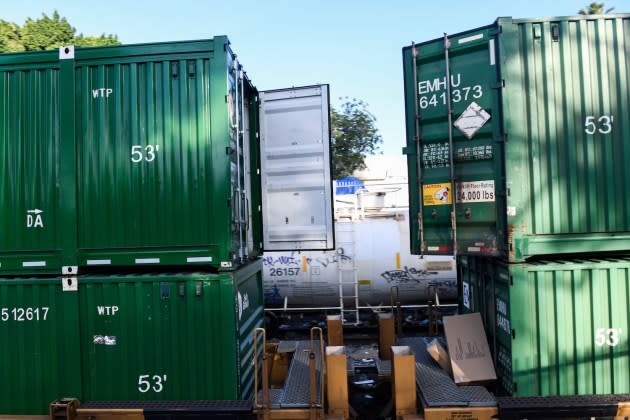Cargo Theft Risks Put Supply Chain on ‘High Alert’ for Memorial Day

The cargo theft problem isn’t getting any better in 2024, with the logistics and transportation industry falling victim to more than 900 incidents in the first quarter alone.
According to data from cargo theft prevention and recovery network CargoNet, there were 925 total incidents in the three-month period—a 46 percent jump compared to year-ago figures and a 10 percent quarter-over-quarter increase.
More from Sourcing Journal
TJX CEO: Potential to Expand Store Footprint By Another 1300+ Doors
South Carolina Ports Briefly Shut Down, Citing 'Software Issue'
With Memorial Day Weekend on the horizon, CargoNet advises supply chain professionals to be on “high alert” because cargo thieves will seek to leverage extended business closures.
In particular, the company wants workers to be on alert for unauthorized attempts to misdirect shipments from the intended receiver.
Before accepting a bid on a shipment, logistics brokers should consider enhanced carrier qualification practices, such as verifying with the registered FMCSA phone number or email or monitoring FMCSA form updates to unauthorized changes to a motor carrier’s contact information. Additionally, brokers should be checking for established, positive load history.
CargoNet says shippers should consider enhancing sign-in procedures to capture vital information about the truck and driver picking up a shipment.
From the period of 2019 to 2023, there were 146 events reported on Memorial Day Weekend, with an average of 29 events per year. Fifty-seven percent of the events took place in California, Texas or Florida. The number of incidents increased from 16 in 2022 to 40 in 2023.
The stolen cargo in each event was worth an average of $264,016, due in part to three thefts that exceeded $1 million in property stolen. Total loss value was $12.4 million.
The Memorial Day statistics are sliver of the wider problem—one which doubled from 2019 to 2023. Late last year, Keith Lewis, vice president of operations at CargoNet, told Sourcing Journal that he didn’t see the problem getting any better in 2024.
According to CargoNet’s data, the average stolen shipment value in the first quarter of 2024 was $281,757, up from the five-year Memorial Day average, while the declared total value was $76 million. However, that number only accounts for incidents where the victim reports the total.
By extrapolating the average shipment value across events without a declared value, CargoNet estimates that a total of $154.6 million worth of goods were stolen from January through March.
While reported events increased in most states, the top targets include California (with a 72 percent year-over-year increase in theft incidents), Illinois (with a 126 percent year-over-year jump) and Texas (with a 22 percent year-over-year increase).
Those three states represented 61 percent of all theft in the first quarter. The top targeted locations for these cargo theft instances include warehouses and distribution centers, as well as parking lots.
Much of the threat came in the form of complex fraud schemes, where entire truckloads were picked up and never delivered or delivered with digitally altered paperwork to hide the theft from the customer.
However, simple cargo theft, including the whole theft of unattended, loaded trailers and pilferage of unattended, loaded trailers, remained a persistent issue. Notable hotspots for such thefts included Southern California, Dallas-Fort Worth, Atlanta, as well as the corridor spanning New York, northern New Jersey and eastern Pennsylvania, CargoNet said.
“Looking ahead to the second quarter and beyond, CargoNet anticipates that high levels of non-delivery thefts and strategic shortages will persist,” the company said in a release. “The threat landscape remains dynamic, necessitating continuous vigilance and proactive security measures from stakeholders across the supply chain.”
Certain commodities, such as small appliances, liquor, energy drinks and copper, were heavily targeted, the report said.
For those that are carrying cargo in transit, CargoNet recommends that companies make sure both security managers and drivers have an accurate license plate, vehicle identification number (VIN) and descriptive information for tractors, trailers, containers and container chassis. Police agencies will need this information to open an investigation in the event of an incident.
The company suggests supply chain employees to secure all trailers and trailers with hardened padlocks and high-security locking devices, respectively. Additionally, CargoNet says to avoid having loaded trailers sit unattended.
CargoNet also gave some security tips to warehouse workers, reminding them to make sure the facility’s lighting, generators, alarm systems and surveillance equipment are in working order. The firm also said to remove keys from all equipment and place them in a secure location, and encouraged documentation and reporting of all suspicious activity that occurs in the facility.
